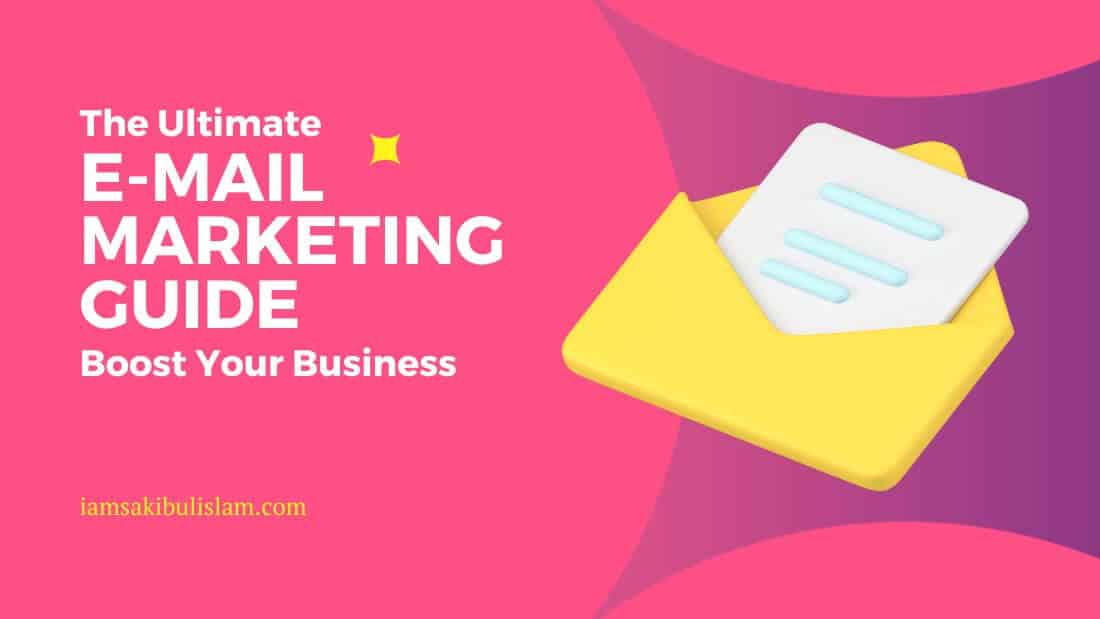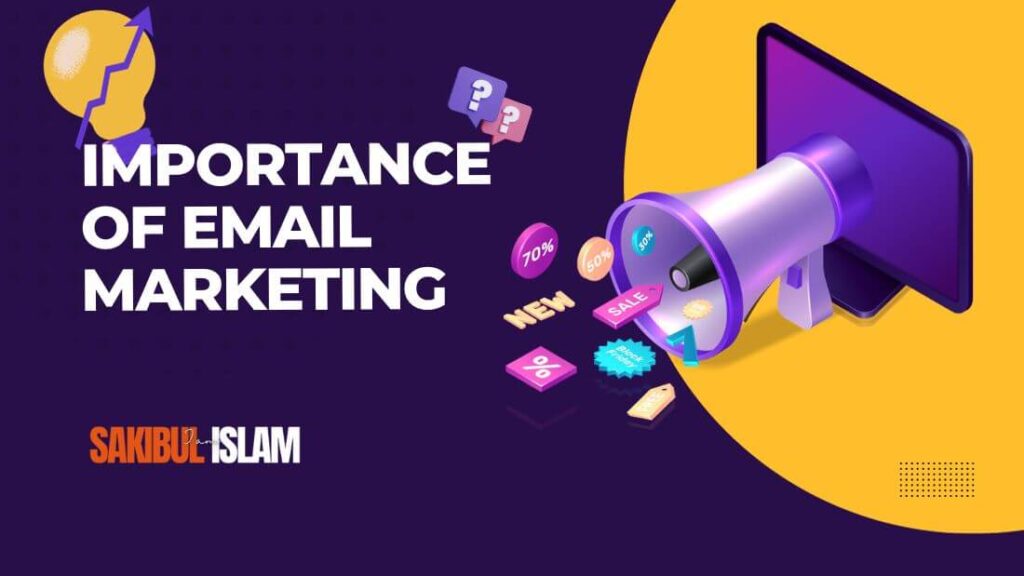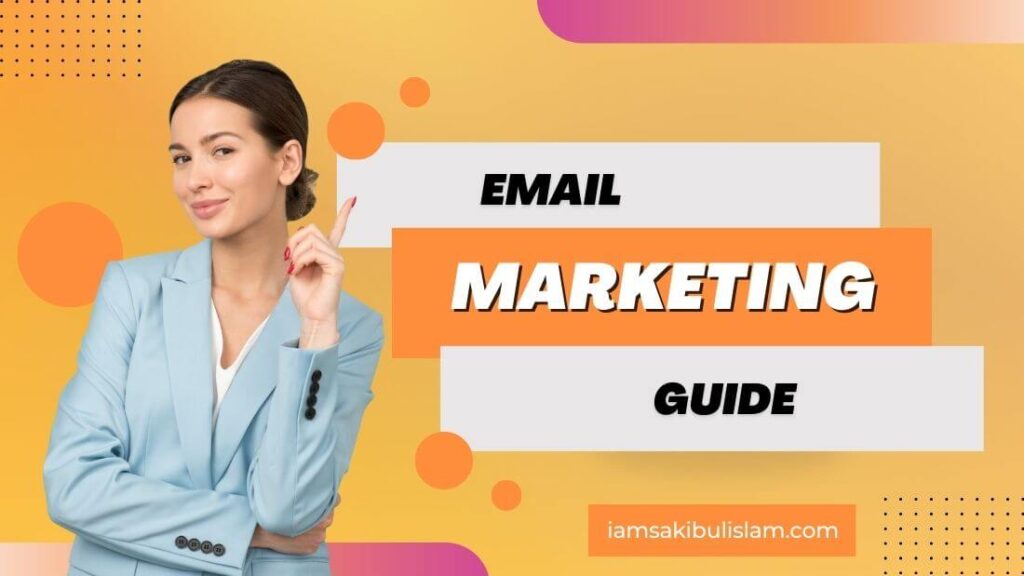Ultimate Email Marketing Guide: Boost Your Business With Every Send

In today’s digital age, where the competition for consumer attention is fiercer than ever, email marketing stands out as a stalwart strategy for businesses of all sizes. It’s not just about sending messages to a list of subscribers; it’s about engaging, nurturing, and converting those subscribers into loyal customers. Welcome to our comprehensive “Email Marketing Guide,” where we’ll take you on a journey through the dynamic world of email marketing. Whether you’re a seasoned marketer looking to refine your strategies or a newcomer eager to harness the power of emails, this guide will provide you with the knowledge, insights, and actionable tips to craft compelling campaigns, build lasting connections, and achieve your business objectives. So, fasten your seatbelts, and let’s embark on an email marketing expedition that promises to boost your digital marketing prowess and your bottom line.
What Is Email Marketing?
Email marketing is a powerful and cost-effective digital marketing strategy that involves sending targeted emails to a group of recipients, typically a list of subscribers who have expressed interest in a brand, product, or service. This strategy utilizes the inherent potential of email communication to engage, inform, and convert recipients into customers or loyal followers. The essence of email marketing lies in delivering personalized and relevant content directly to an individual’s inbox. It’s a versatile tool used by businesses, organizations, and marketers to promote their offerings, share valuable information, nurture customer relationships, and ultimately, achieve their marketing objectives. In this “Email Marketing Guide,” we will delve deeper into the various aspects of this strategy, providing you with a comprehensive understanding of its components, best practices, and how to leverage it for success.
Types of Email Marketing
Email marketing encompasses a diverse range of formats, many of which will be discussed in the following section.
1. Promotional Emails:
Promotional emails are designed to highlight specific products, services, offers, or sales events. They are commonly used to drive sales and conversions. Promotional emails often include discounts, product announcements, and calls to action encouraging recipients to make a purchase.
2. Newsletter Emails:
Newsletter emails are a form of content marketing. They contain valuable information, updates, news, or educational content related to a particular industry, brand, or topic. Newsletters are used to keep subscribers informed and engaged, and they often have a regular sending schedule.
3. Transactional Emails:
Transactional emails are automated messages sent in response to specific customer actions or interactions with a website or application. Order confirmations, shipment notices, password reset emails, and receipts are some examples. They are primarily functional but can also include opportunities for upselling or cross-selling.
4. Welcome Emails:
Welcome emails are sent to new subscribers or customers to greet them and introduce the brand. They often include a thank-you message, information about the brand, and an invitation to engage further with the business, such as through social media or additional email subscriptions.
5. Abandoned Cart Emails:
Abandoned cart emails are sent to individuals who have added products to their online shopping carts but have not completed the purchase. These emails remind users of the items in their cart and encourage them to complete the transaction.
6. Drip Campaigns:
Drip campaigns, also known as automated email sequences, are a series of emails sent at predefined intervals. They are used to nurture leads and guide subscribers through a specific customer journey. Drip campaigns can be used for onboarding, lead nurturing, educational sequences, and more.
7. Reengagement Emails:
Reengagement emails are sent to subscribers who have become disengaged or inactive. These emails aim to revive their interest and encourage them to re-engage with the brand. They may include special offers or reminders of the value the brand provides.
8. Survey and Feedback Emails:
These emails are used to gather customer feedback, conduct surveys, and assess customer satisfaction. They can help businesses improve their products, services, and customer experiences.
9. Announcement Emails:
Announcement emails are used to share significant news or updates related to a business, such as new product launches, company milestones, or event invitations.
10. Social Proof and Review Emails:
Social proof emails often include customer reviews, testimonials, or user-generated content to build trust and credibility. These emails can be used to showcase the positive experiences of other customers.
11. Personalized Recommendation Emails:
Businesses use data and user behavior to send personalized product recommendations to customers. These recommendations are based on a customer’s previous purchases, browsing history, or preferences.
Here I have shared some secrets about email marketing. I have tried to discuss 10 secrets here, you can see if you want.
Importance of Email Marketing
The importance of email marketing cannot be overstated in the realm of digital marketing. Here are some key reasons why email marketing is a crucial tool for businesses and organizations then go to email marketing guide:

Direct Communication: You may communicate directly with your target audience via email. Messages land in subscribers’ inboxes, allowing you to reach them personally and avoid the uncertainty of social media algorithms or search engine rankings.
Cost-Effective: Email marketing is one of the least expensive marketing methods accessible. Compared to traditional advertising methods, it offers a high return on investment (ROI) while requiring minimal financial resources.
Targeted Marketing: Email allows for precise audience segmentation. You can send tailored messages to specific groups based on factors like demographics, purchase history, or engagement level, increasing the relevance of your content.
Engagement and Interactivity: Emails can be interactive, containing images, videos, links, and calls to action. This interactivity can drive engagement and encourage recipients to take desired actions, such as making a purchase or clicking through to your website.
Measurable Results: Email marketing platforms provide detailed analytics, allowing you to track key metrics like open rates, click-through rates, conversion rates, and more. These insights allow you to improve your plans and get greater results.
Automated Campaigns: Email marketing platforms offer automation features, allowing you to set up automated email sequences triggered by specific actions or time intervals. This streamlines your marketing efforts and nurtures leads efficiently.
Brand Building: Consistent email communication helps reinforce your brand identity and maintain top-of-mind awareness with your audience. Over time, this contributes to brand loyalty and trust.
Customer Retention: Email marketing is a powerful tool for keeping existing customers engaged. You can send them valuable content, updates, and exclusive offers to encourage repeat business and customer loyalty.
Lead Generation: It’s an effective means of collecting leads and growing your customer base. By offering valuable content or incentives in exchange for email addresses, you can expand your list of potential customers.
Personalization: Email allows you to create personalized content and offers based on individual preferences and behaviors. Personalization can significantly improve the relevance of your messages and increase conversion rates.
Global Reach: Email marketing has a worldwide reach, allowing you to engage with people all over the world. It’s a versatile tool for businesses with a local or global customer base.
Immediate Communication: Email campaigns can be launched quickly, enabling you to react to market changes or communicate time-sensitive information promptly.
Enhanced Customer Relationships: Email marketing fosters two-way communication. You can encourage recipients to reply to emails, providing a platform for feedback and dialogue, which can improve customer relationships.
In summary, email marketing is a versatile, cost-effective, and highly measurable strategy that enables businesses to connect with their audience, nurture leads, drive sales, and build lasting customer relationships. Its importance in the digital marketing landscape is evident in its ability to deliver consistent, measurable results for businesses of all sizes.
Email Marketing Guide For You
Email marketing is a highly effective digital marketing strategy when done correctly. Here is a step-by-step lesson to email marketing guide:

1. Set Clear Objectives:
Determine your goals for email marketing. These could include increasing sales, building brand awareness, nurturing leads, or driving website traffic. You can use the sales funnel to boost your business if you want.
2. Build an Email List:
Start by collecting email addresses from interested individuals. You can do this through sign-up forms on your website, social media, in-store sign-ups, and other opt-in methods. Always obtain explicit consent before adding someone to your list.
3. Choose an Email Marketing Platform:
Select an email marketing platform or service that suits your needs. Mailchimp, Constant Contact, GetResponse, and AWeber are all popular solutions. These platforms provide tools for creating, sending, and tracking email campaigns.
4. Create Valuable Content:
Create interesting email content that benefits your readers. Product announcements, promotions, instructional information, newsletters, or special deals are all examples of this. Make certain that your information is timely, well-written, and visually appealing.
5. Design Engaging Emails:
Use responsive email templates to create visually appealing emails that look good on both desktop and mobile devices. Incorporate images, clear calls to action, and a compelling subject line to entice recipients to open the email.
6. Personalize Your Messages:
Use personalization to address subscribers by their names and tailor content based on their preferences and behaviors.
7. Send at the Right Time:
Schedule your emails to be sent at times when your audience is most likely to engage with them. This can vary depending on your target demographic.
8. Monitor and Analyze Results:
Track email performance using metrics like open rates, click-through rates, conversion rates, and unsubscribe rates. Use this data to fine-tune your plan and improve future campaigns.
9. Automate Email Campaigns:
Implement automation for tasks like welcome emails, abandoned cart reminders, and lead nurturing. Automation ensures timely, relevant messages are sent without manual intervention.
10. Engage with Subscribers:
Encourage interaction and feedback by including options for replies and feedback in your emails. This can help build stronger customer relationships.
By following these steps and consistently delivering valuable, relevant content, you can effectively harness the power of email marketing to achieve your marketing goals and build strong relationships with your audience.
A Tips For Email Marketing
I have discussed everything in this email marketing guide article, now I am giving you a few tips that you can use to earn passive income. And that is you can join as a Solo Ad Seller in Udimi using your targeted customer email list. There your buyers need to click on their link.
Conclusion
In conclusion, email marketing is a dynamic and indispensable tool in the digital marketing arsenal. As we’ve explored in this comprehensive “Email Marketing Guide,” it offers numerous advantages for businesses and organizations seeking to connect with their audience, foster customer relationships, and achieve a wide range of marketing objectives.
To succeed in email marketing, it’s essential to set clear objectives, build a quality email list, create valuable content, and use the right email marketing platform. Regularly monitor and analyze campaign performance, make data-driven improvements, and ensure compliance with relevant regulations.
In the ever-evolving digital landscape, email marketing remains a reliable, high-impact strategy that stands the test of time. So, whether you’re a seasoned marketer or a newcomer to the field, the key takeaway from this guide is clear: email marketing is not just about sending emails; it’s about building connections, nurturing engagement, and achieving your marketing goals with each and every “send.”
Harness the power of email marketing to unlock your business’s full potential, connect with your audience, and watch your success soar in the digital realm. Thank you for joining us on this journey through the email marketing landscape.


[…] incorporate multiple upsells and one-time offers into your funnel, and you’ll appreciate its email marketing automation capabilities. You can effortlessly schedule emails to go out after someone purchases […]
[…] traffic: Use different marketing channels to drive traffic to your website, such as social media, email marketing, and paid […]
[…] customers may leave the e-commerce store without making a purchase. The e-commerce store uses email marketing to retarget these potential customers with special offers and promotions to encourage them to […]
[…] Reoon Email Verifier is a user-friendly email verification software that simplifies the process of confirming email validity. Its straightforward approach allows you to verify emails in bulk effortlessly by seamlessly connecting your database to their servers. In addition to ensuring the authenticity of your email list, Reoon Email Verifier offers a suite of practical features to enhance your email marketing campaigns. […]
[…] you can explore affiliate marketing and can also do email marketing. This involves promoting products through referral links, and when someone makes a purchase using […]
[…] Email Marketing: Tailor your outreach efforts with modified email marketing, leading to higher conversion […]